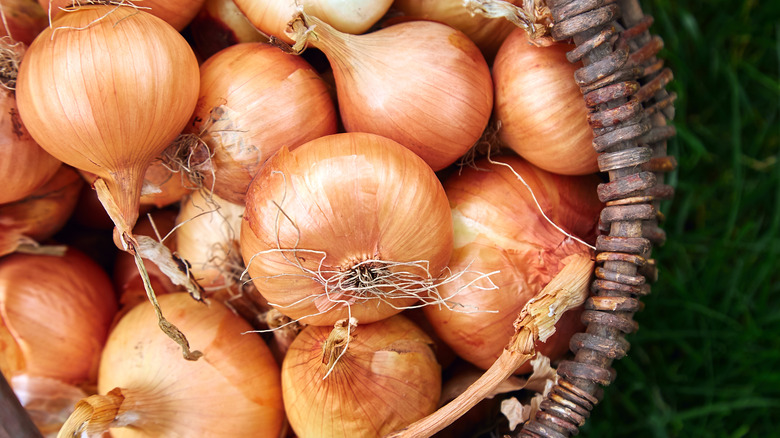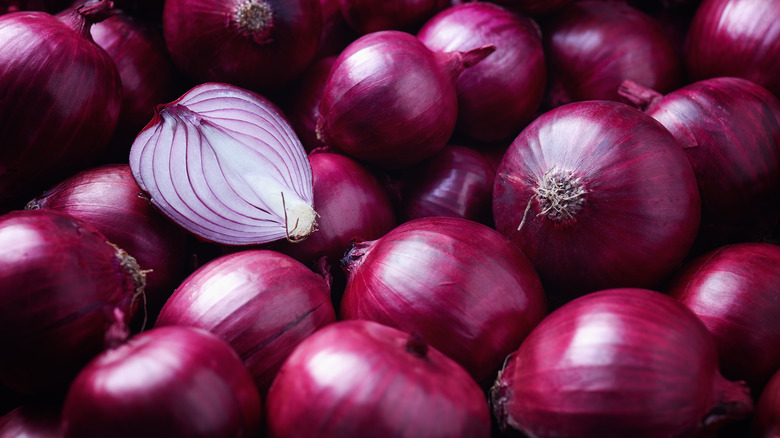The Scary Reason You Should Be Throwing Away Your Onions
If there's one produce item we're always sure to keep in our pantries, it's onions, that super versatile allium that brings flavor to almost every dish we make. Whether layered into the base of a soup or stew, sautéed into a tomato sauce along with its trusty cousin garlic, or pickled and piled atop a sandwich, onions — be they white, yellow, or red — are truly an indispensable ingredient for any home cook. It should come as no surprise, then, that the vegetable consistently tops the list of most-sold produce items in the United States, surpassed only by fellow staples potatoes and tomatoes (via USDA).
Although cooking whole foods at home is one of the most effective ways to eat healthily (via Help Guide) and avoid the contamination that can cause food-borne illnesses (via WebMD), the fresh produce you buy can occasionally be tainted with germs that can make you sick. Such was the case recently with a huge shipment of onions in the U.S.
Onions tainted with salmonella bacteria
If you love onions and purchased any unlabeled ones over the past few months, the Centers for Disease Control and Prevention is currently recommending that you dump them straight into the compost bin. According to Fox 8, a salmonella outbreak linked to whole onions imported from Chihuahua, Mexico, has sickened 652 people in 37 states, resulting in 129 hospitalizations.
"OUTBREAK UPDATE: Fresh whole onions causing large Salmonella outbreak in 37 states," the CDC tweeted yesterday afternoon. "Throw away any unlabeled onions at home. Do not eat, sell, or serve red, white, or yellow onions imported from Mexico and distributed U.S.-wide by ProSource Inc." Per the food safety alert, onions of all colors are at risk of contamination, and if they're unlabeled, it's impossible to tell where they came from.
Salmonella bacteria typically get onto produce when those crops are watered in the field or washed during processing with water that hasn't been effectively sanitized (via Mayo Clinic). Symptoms include the typical effects of food poisoning, ranging from nausea to diarrhea to vomiting, and typically pass within a few days. Therefore, if you have any onions in the pantry right now, it might be best to get rid of them.

